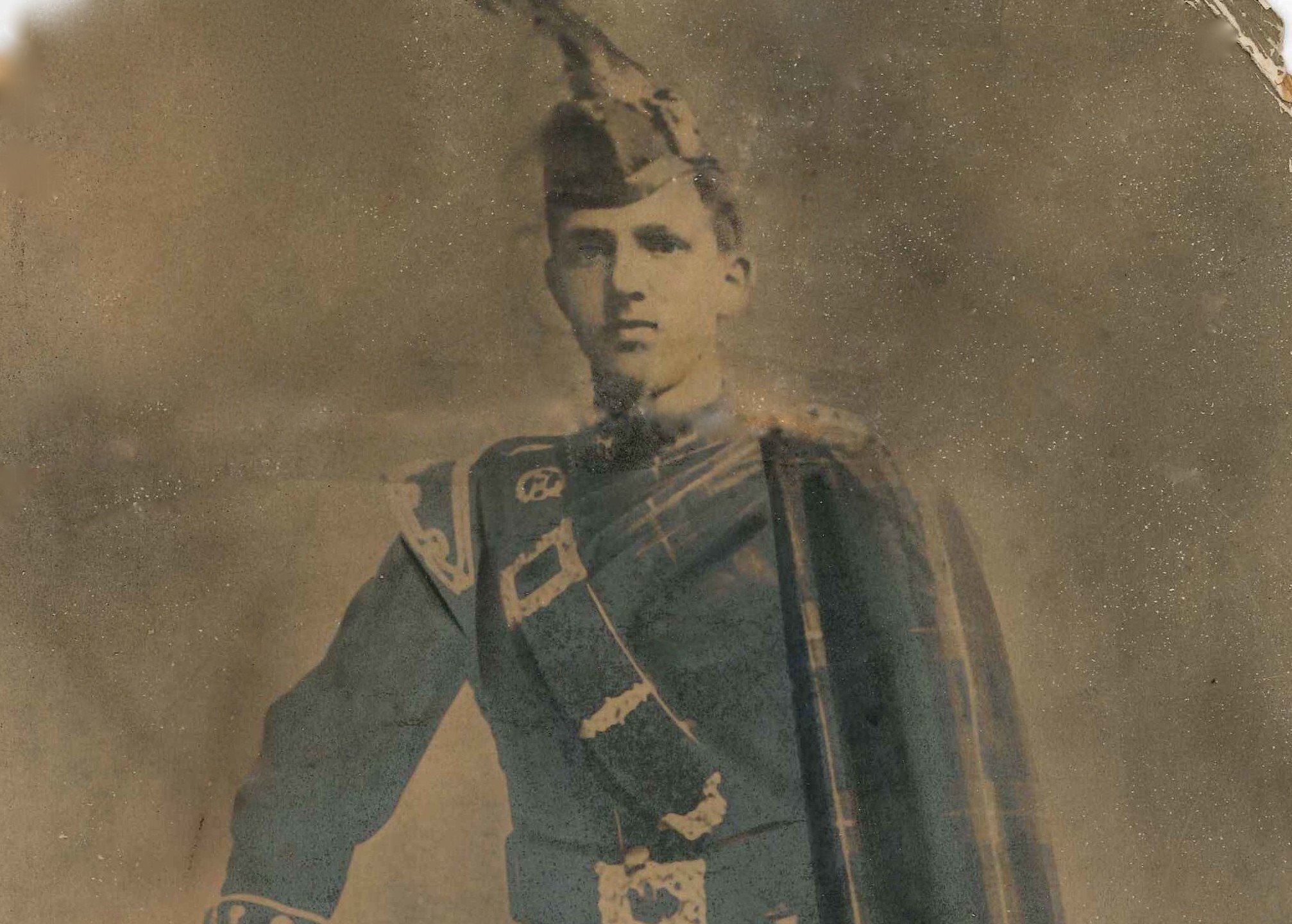He escaped the Germans, got wounded in both legs and lost an arm, but Charles Taylor still managed to come home from the First World War and raise a family of ten.
Born in Fraserburgh on June 18 1889, Charlie, as he was known, was the son of a postman who had lost his arm in an accident.
He worked as a cooper for a number of years before joining the army as a regimental piper from 1904 to 1911.
When war was declared in July 1914 Mr Taylor was a reservist, but within days of the announcement he had signed up to the army again.
Less than three weeks later he was in Belgium with the First Gordon Highlanders at the Battle of Mons.
Mr Taylor was with a group of soldiers who were taken prisoner when they were overwhelmed by the superior number of German troops.
They were held in an old building, but the ever resourceful Mr Taylor squeezed out of the building through a chimney and was able to make his way back through the German lines to rejoin his own company.
During the remaining months of 1914 he fought in battles across France and Belgium, including Petit Morin and Ypres Salient, before fighting at Wytschaete Ridge in December.
On December 14 the Gordon Highlanders went over the edge of their trenches to attack a German position. They were fighting uphill in almost a foot of mud under constant, heavy fire from rifles and machine guns.
They suffered heavy losses and Mr Taylor was wounded in both legs and a hip, but said he felt worse about having to lie and watch as his friends bodies hung on the barbed wire in front of him.
After a short spell of treatment and rest, Mr Taylor was back with his unit in time for the Second Battle of Ypres which took place between April and May 1915.
He spent the later half of the year in Flanders, and was pulled from the battlefield with severe trenchfoot during the winter of 1915.
The damage was so severe he almost had both feet amputated, but Canadian doctors intervened and tried a different treatment on him.
His feet were saved and he was allowed back to Fraserburgh to recover for several weeks before returning to France in early 1916.
When Mr Taylor returned to the continent, he was assigned to the Second Gordon Highlanders, who were preparing for the Battle of the Somme.
On the morning of July 1 1916, as the Gordon Highlanders prepared to go over the top of their trench, they were surrounded by screaming and explosions.
At 7.30am, Piper Charles Taylor leapt over the parapet and under a hail of machine gun fire played the regiment’s marching tune, The Cock o’ the North.
Reports said he piped like a man possessed as the rest of the Highlanders, with their bayonets fixed on, charged past him.
Mr Taylor played until his bagpipes were ripped apart by bullets and his left arm was torn to pieces.
He fell into a shell hole, badly injured and alone, but had the presence of mind to use a rifle ‘pull through’ as a tourniquet to slow the rapid flow of blood.
He was found later that evening by an old friend, George Wiseman, who was searching the area for survivors.
After being taken from the battlefield for the last time, he was transferred to a hospital in Rouen where they amputated his remained of his left arm and part of his shoulder.
He was then brought back to Blackburn, where gangrene set in and he fell dangerously ill. As death came closer his wife was sent for, but with more trimming of his shoulder, he had a miraculous recovery.
The following year, 1917, Mr Taylor returned to Fraserburgh to face the new challenges of a life outside the army for a one-armed veteran.
He found employment as a postman and, although his feet were permanently swollen from size nine to size 12, he never one complained.
Along with his wife, Elsie, he brought up a family of ten children, and when two of his sons learnt to play the bagpipes, he was able to play along with the right hand while they did the left.
He would amaze his friends with his ability to drink a pint and smoke at the same time, and was even able to light his own cigarette by striking the match on his waistcoat buttons.
Although he couldn’t fight in WWII he still played his part, joining the Home Guard and giving instructions on how to use machine guns and rifles. He also took troops on route marches and helped set up the first Boys Brigade pipe band in the town.
He retired from his job in 1950, after 32 years, and travelled to Canada and the USA with his wife to be reunited with their siblings who had emigrated in the first half of the century.
When asked by them about his injury, he just said quietly: “Ach, that’s best forgotten. Ats fit happened than an’ there’s a gye lot mair like me.”
On November 9 1956 Piper Charles Taylor passed away in Fraserburgh aged 67.
Three times he was carried from the battlefield, and on that final day he was carried from his home to the sounds of a piper playing Death of the Chief and Flower o’ the Forest.
His ten children grieved that day, but the family has continued to grow and dozens of grandchildren, great-grandchildren and great-great-grandchildren are proud of the stories about what Mr Taylor did during the war and, equally, after it was over.
